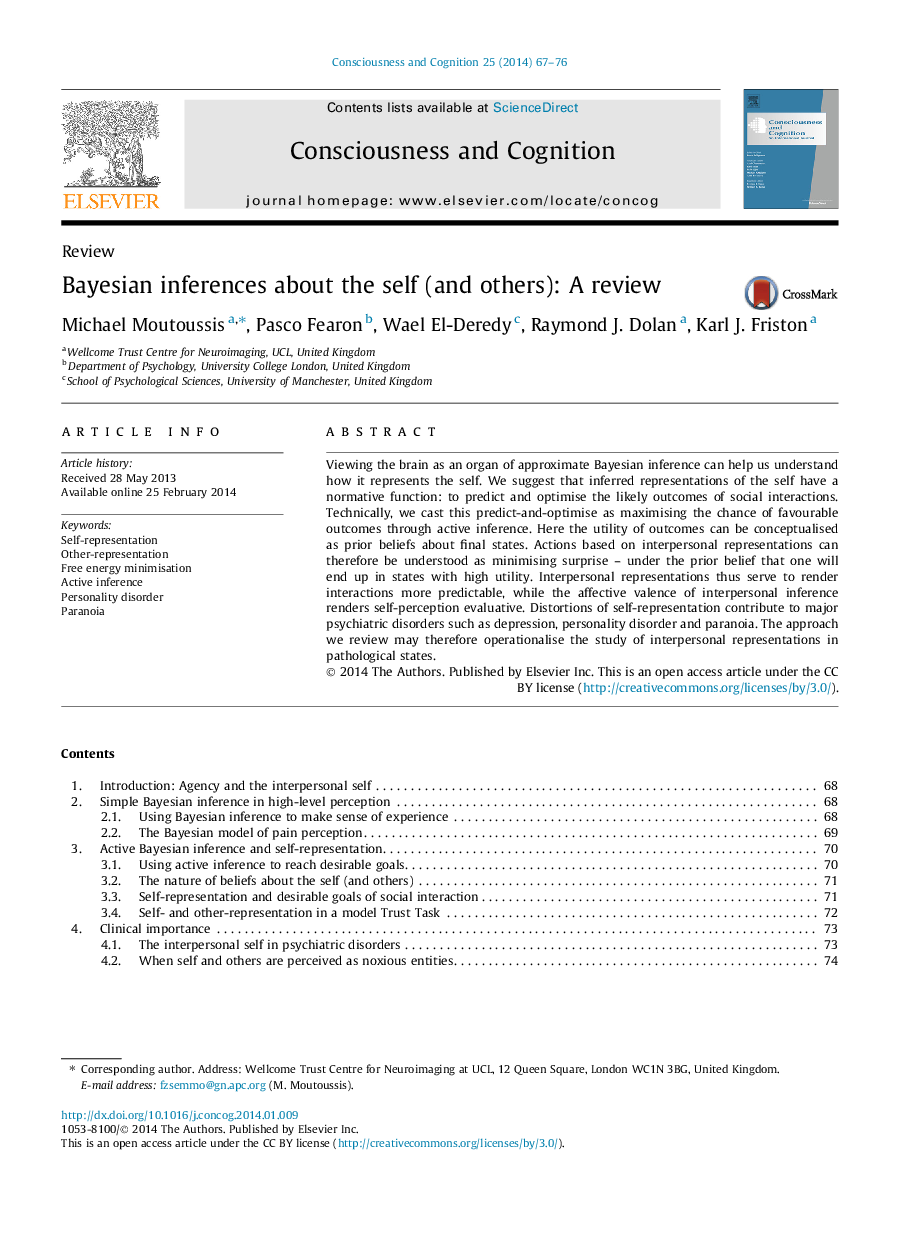| Article ID | Journal | Published Year | Pages | File Type |
|---|---|---|---|---|
| 7290227 | Consciousness and Cognition | 2014 | 10 Pages |
Abstract
Viewing the brain as an organ of approximate Bayesian inference can help us understand how it represents the self. We suggest that inferred representations of the self have a normative function: to predict and optimise the likely outcomes of social interactions. Technically, we cast this predict-and-optimise as maximising the chance of favourable outcomes through active inference. Here the utility of outcomes can be conceptualised as prior beliefs about final states. Actions based on interpersonal representations can therefore be understood as minimising surprise - under the prior belief that one will end up in states with high utility. Interpersonal representations thus serve to render interactions more predictable, while the affective valence of interpersonal inference renders self-perception evaluative. Distortions of self-representation contribute to major psychiatric disorders such as depression, personality disorder and paranoia. The approach we review may therefore operationalise the study of interpersonal representations in pathological states.
Related Topics
Life Sciences
Neuroscience
Cognitive Neuroscience
Authors
Michael Moutoussis, Pasco Fearon, Wael El-Deredy, Raymond J. Dolan, Karl J. Friston,
